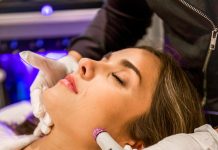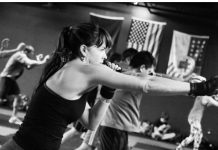In 2007, Jai Reddy confronted the huge task of addressing his sonβs recently diagnosed autism. He was soon surprised at the difficulty involved and knew there had to be a better way.
βBack then, we had only about 30 percent of the resources that exist today,β he says. βAnd the facilities that were available were often isolated. In a large hospital, occupational therapy might be on the third floor and physical therapy on the fifth. And they didnβt talk to each other. The people worked solely within their own specialty.β
In addition to being siloed and overspecialized, centers for help were physically scattered.
βI remember a two-hour drive from just Shelby Township to Bloomfield. It was crazy.β Reddyβs position as an independent IT developer allowed him the necessary flexibility, but he knew not all parents had this luxury.
Realizing this, Reddy decided to do something both proactive and progressive. In 2017, working with a team of specialists, he established , a Ferndale-based nonprofit dedicated to providing complete and effective care to children with disabilities.
The organization describes itself as βa mix of compassionate hearts, skilled therapists, clinical minds, and critical thinkers committed to providing comprehensive and individualized programming to meet each childβs specific needs.β
LLK uses an integrated approach to bring together services related to a childβs physical, mental, and behavioral needs. Specific examples include traditional forms of therapy (e.g., speech, counseling) along with music therapy, art therapy, physical recreation, and training in nutrition and life skills.
Housed in a former church on Hilton Road in Ferndale, LLK has repurposed the sanctuary as a gymnasium, while other rooms of various sizes function as play and therapy spaces. Despite the presence of walls, the building has an open feel.
βWe barely have contained rooms here, and the kids donβt sit at tables,β Reddy says.

LLK seeks to complement a childβs regular schooling, not be a substitute. βSome kids go to school primarily and they come here after school. It depends on their own needs. Every kid has their own customized program,β says Melanie Esland, chief development officer.
In its six years of operation, LLK has helped more than 350 children. In surveys of parents, 100 percent believe their children have become more confident in developing basic life skills, while 88 percent feel their children have acquired the skills needed to cope with our current challenging times.
To finance its operations, LLK relies on a variety of funding sources. Many services are directly billed to parents, while others are covered by a familyβs health insurance. LLK also seeks out grants from foundations and other philanthropic sources in addition to forming creative alliances. It does not currently accept Medicaid.
βI am always looking for good relationships β ways for us to collaborate and partner with other nonprofits doing good work thatβs complementary to ours,β Esland says.
One example is the partnership with Honey for Moms, a nearby support organization for mothers. Currently, the two teams are setting up support groups for mothers of LLK children.
βMothers that bring their kids here can walk down the street [to Honey for Moms] and take advantage of their program at the same time,β Esland says.
Always working to innovate, LLK is exploring a potential partnership with Oakland Community College to provide prevocational training for kids ages 10 to 19. Also on the horizon is the establishment of an additional location. Currently, LLK is considering the former YMCA in Pontiac β a 50,000-square-foot building (which would be shared with other groups) with a gym and pool facilities.
The most dramatic enhancement to the Ferndale campus is the recent addition of a $1.6 million interactive Sensory Garden and Play Park intended as a place for physical activity and learning. Last year, it won the cityβs Project of the Year Award.
The idea for the 8,500-square-foot facility was prompted by recent research that indicates higher rates of obesity and diabetes among children with developmental disabilities. Features of the garden and park include a covered multisport half-court, a rubber playing surface, and other innovative elements, including a greenhouse with a roof-mounted rainwater catchment system. The collected water is used for the inside plants and outside Nature Zone.
The best testimonials, of course, come from parents. Huntington Woods resident Sara Faruolo, whose son receives treatment at LLK, recently commented, βHenry is a different child since starting LifeLab. I now see and experience the best version of him. Henryβs autism diagnosis controlled our home for years. β¦ Our home life is no longer something that controls us and dictates our behaviors.β
This story is from the September 2023Μύissue of ΒιΆΉ·¬ΊΕ Detroit magazine. Read more in our digital edition.
|
| Μύ |
|








